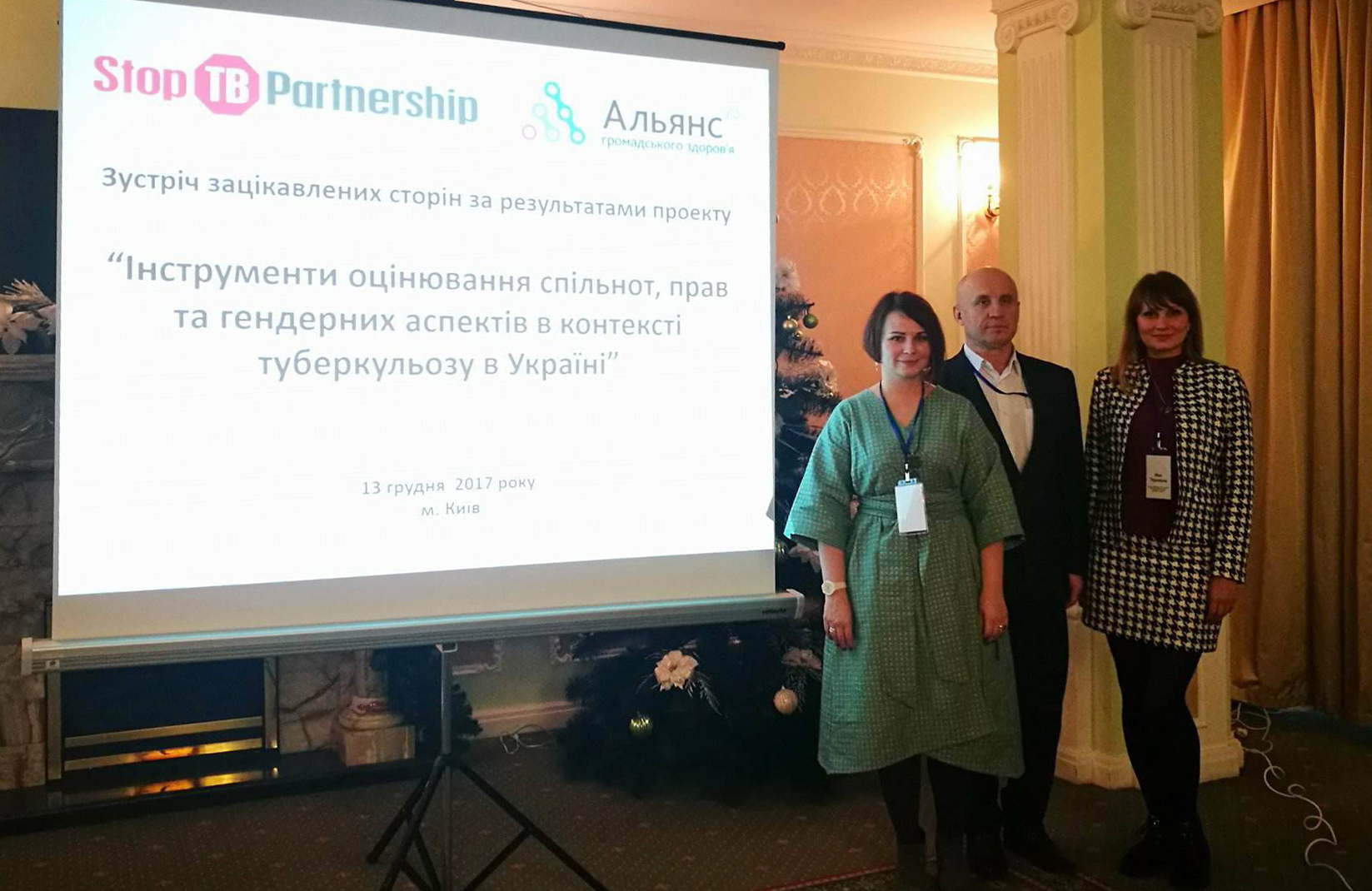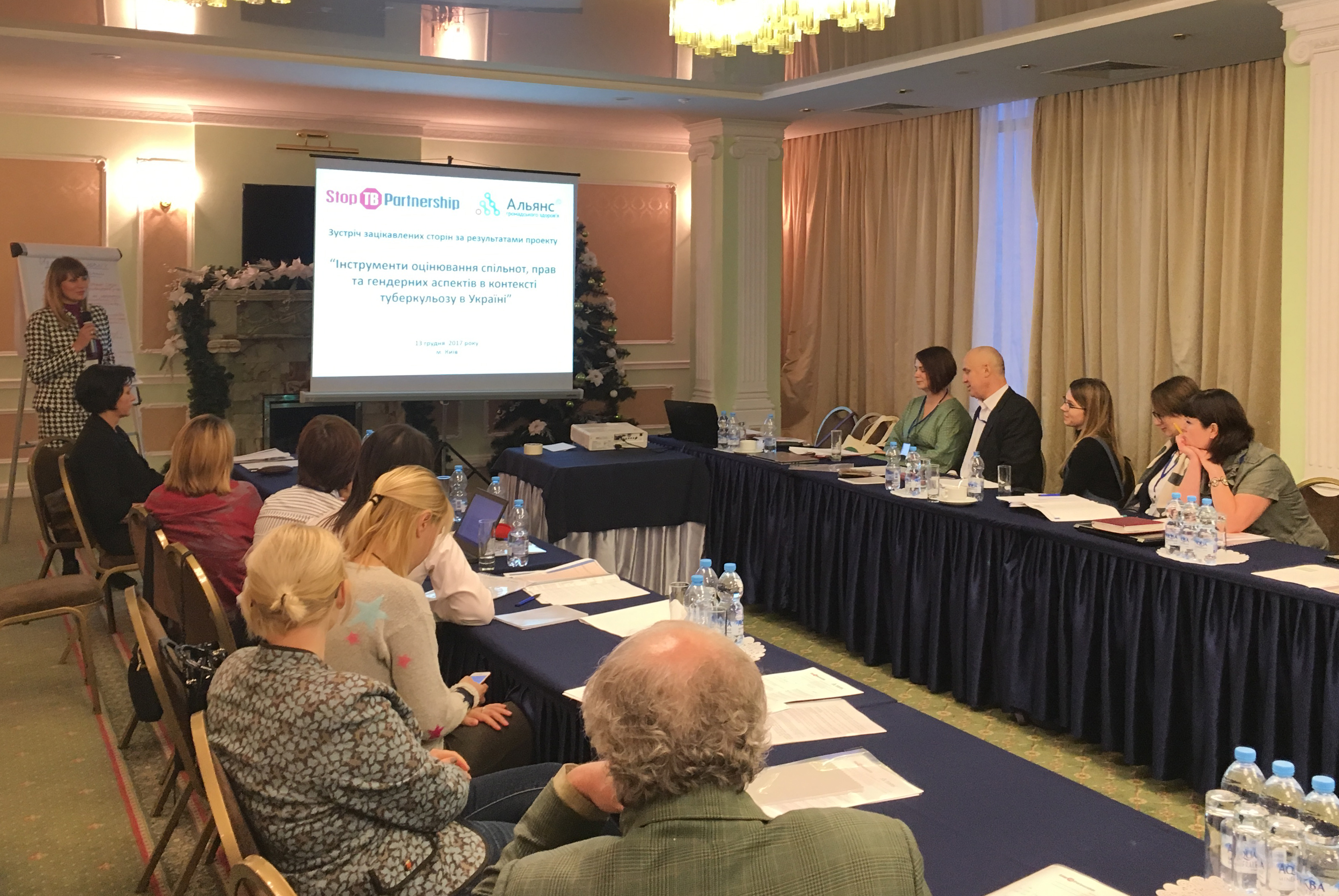THE YEAR 2017 WAS CRITICAL IN BUILDING SOLID GROUND FOR THE FUTURE UKRAINE –WE WOULD LIKE TO ACKNOWLEDGE STRONG LEADERSHIP OF THE MINISTER OF HEALTH ON HEALTH REFORM AND INCREASE IN DOMESTIC FUNDING FOR HIV AND TB. CIVIL SOCIETY ORGANIZATIONS INCLUDING ALLIANCE FOR PUBLIC HEALTH HAVE BEEN WORKING HARD TO ACHIEVE SIGNIFICANT RESULTS IN FIGHTING HIV, TUBERCULOSIS AND HEPATITIS.
HERE ARE OUR SEVEN HIGHLIGHTS OF THE OUTGOINGYEAR WHICH HAVE FORMED A SOLID GROUND FOR 2018:
1 With all its partners Alliance makes great contribution in achieving 90-90-90-90 in Ukraine. In 2017 HIV prevention services were provided to 218 829 people who inject drugs, 37 571 sex workers and 40 406 men who have sex with men. Alliance has made significant input in HIV case finding at the national level. 237 000 representatives of key affected populations were tested. Moreover, in 2016 and in the first half of 2017 85% of all officially registered cases among PWID were confirmed as a result of successful referral from harm reduction projects.
2 Scaling up Opioid Substitution Therapy to over 10 000 patients – making it the largest program in Eastern Europe and Central Asia. Being able to nurture this program over from a seed level of less than 100 patients to 10034 patients in 178 sites all over the country, Alliance started transitioning this program to the Ministry of Health. The transition has transferred the first 8% of the OST patients as of 1st of December 2017 with the clear road map and further scale up plans.
Transition of the Ukrainian OST program from Alliance to the Government
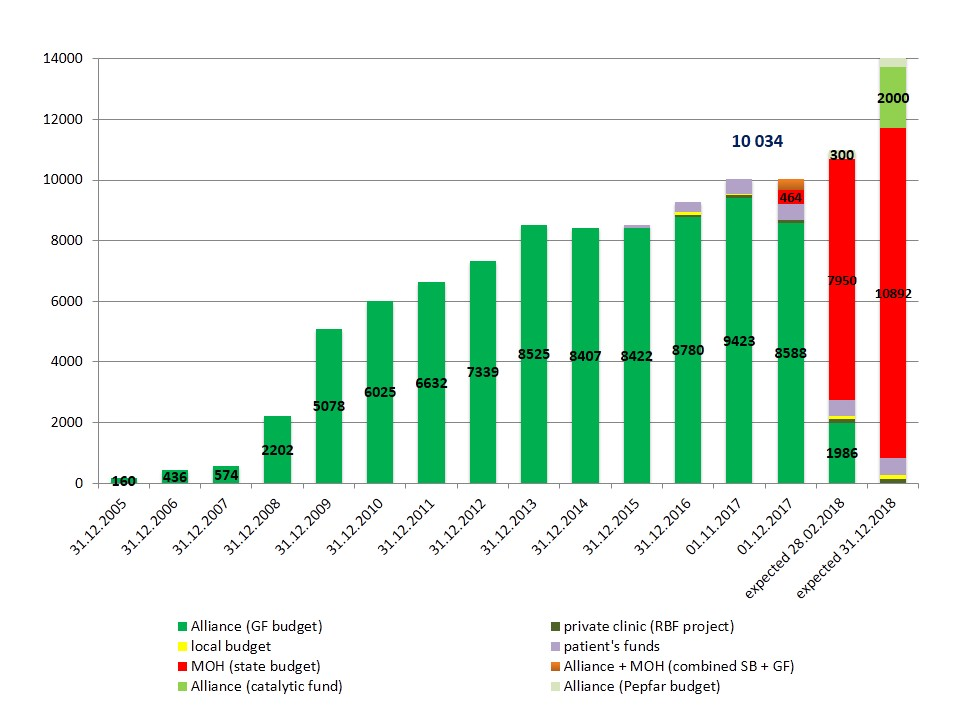
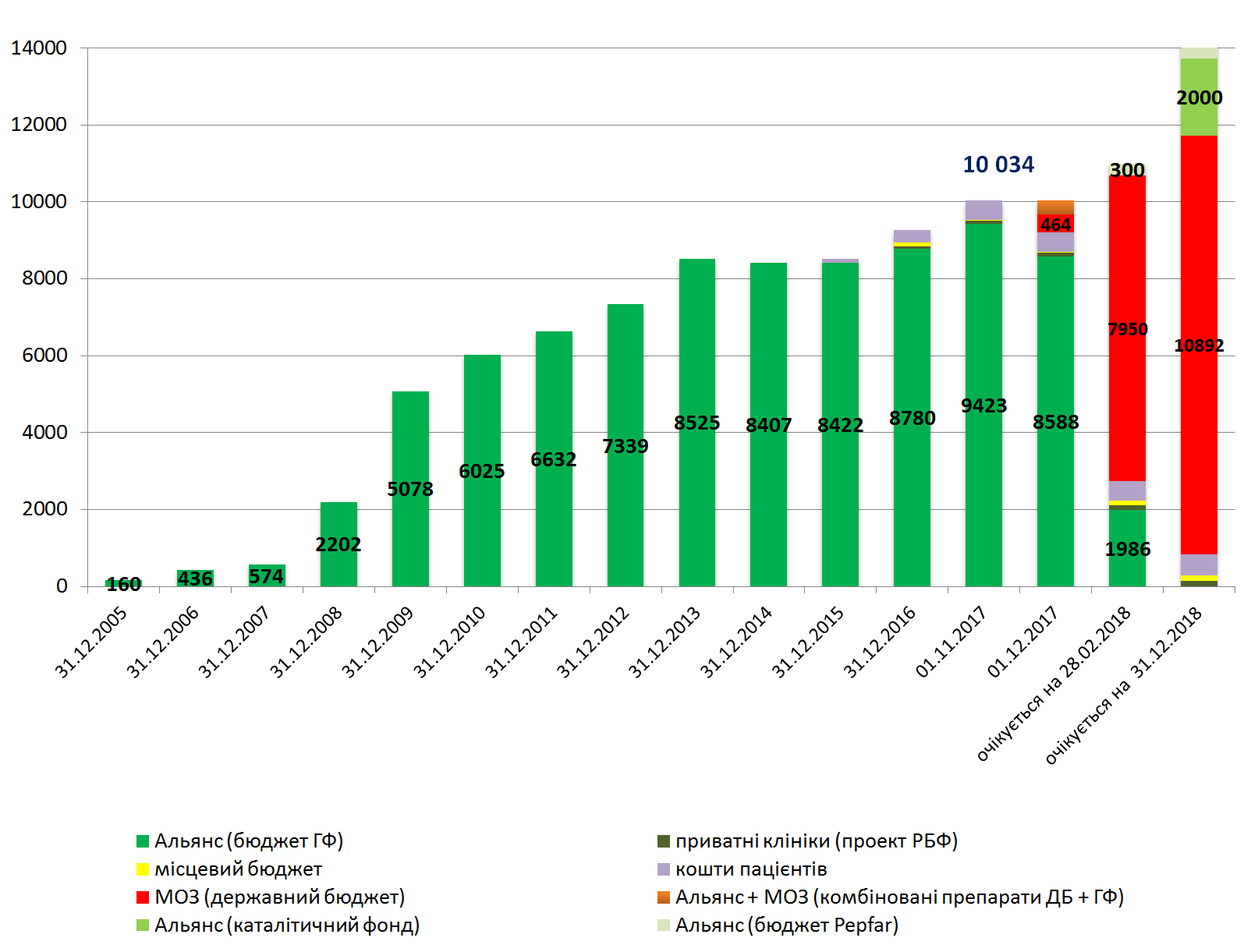
3 Alliance has directed half of its 2017 funding to stopping TB. During 2015-2017 every second MDR-TB patient receiving treatment in Ukraine was treated with drugs that were procured, donated and delivered by the Alliance. Starting from 2018 the government will be in charge of treating all MDR-TB patients with governmental resources. As for the treatment model we are proud that patient-oriented approach implemented by civil society organizations allowed for a nearly twofold increase in treatment success rate – 46% to 79%! Policy support is provided by the recently established in Ukraine Parliamentary TB Platform with 47 MPs joioned!
4 We have made DAA Hepatitis C treatment a reality in Ukraine! Over 2000 patients representing key populations got access to treatment using Sofosbuvir and Harvoni. Those who completed treatment and were tested (1679 patients) showed incredible results – in 95% virus was not detected! The treatment was focused on patients from key populations with or without HIV co-infection, among them 83% of patients were people who inject drugs. Treatment was also provided to 50 military veterans. This year Alliance supplied 1000 HCV rapid
tests to the prison population allowing diagnosis and treatment for 50 prisoners.
5 Ukraine became a model for other countries requesting to learn from us. During 2017 Alliance has been supporting ongoing projects in 15 countries, mostly in Eastern Europe and Central Asia. In 2017 in partnership with Alliance Consultancy technical support was provided to 24 countries:
Armenia, Azerbaijan, Afghanistan, Belarus, Bulgaria, Georgia, Ethiopia, Iran, Kazakhstan, Kenya, Kyrgyzstan, Kosovo, Malawi, Malaysia, Moldova, Nigeria, Pakistan, Russian Federation, Seychelles, Sudan, Tajikistan, Tanzania and Zanzibar, Uganda and Uzbekistan.
6 Exploring new areas and bringing innovations was another feature of 2017 – PrEP, self-testing, starting new program with transgender population, working with Ukrainian military personnel and in conflict areas in the East of Ukraine, boosting TB/HIV fast-track cities response. Alliance was the key advocate to scale up work with transgender people, including allocation of special resources from the Global Fund. We supported transgender movement in the region, conducted a unique assessment with over 600 transgenders in 3
EECA countries. Jointly with PLWH Network the Alliance launched campaign on HIV testing, focusing on self-testing with the visuals and referral to the web-site selftest.org.ua. New oral HIV tests were demonstrated during WAD and piloted in key populations programs.
7 Alliance, PLWH Network and Public Health Center by joining efforts with all key stakeholders together mobilized over USD 150 million for Ukraine’s HIV, TB and Hepatitis response for 2018-2020. The major external funding sources for the country are the Global Fund and PEPFAR. During the year Alliance has managed to attract new funding from 7 other donors.
THE YEAR OF 2018 WILL BE A YEAR OF ENSURING SUSTAINABILITY AND TRANSITION OF ESSENTIAL PREVENTION AND TREATMENT PROGRAMS, AND IT IS OUR JOINT RESPONSIBILITY TO MAKE IT SUCCESSFUL. FOCUS ON COMMUNITIES AND KEY POPULATIONS IS THE MAJOR PRIORITY IN ALLIANCE WORK.
On the New Year eve we are expressing huge thanks and wishing all the best to our partners – over 300 NGOs and medical facilities we are implementing the programs with in and outside of Ukraine, PLWH Network 100% Life, Public Health Center, Ministries we are working with – Health, Youth and Sports, Social Policy, Internal Affairs, Defense, Education
and Science, Justice , Foreign Affairs and other governmental institutions, Members of Parliament, to The Global Fund, PEPFAR, CDC, USAID, French Agency for International Technical Expertise, Elton John AIDS Foundation, Robert Carr civil society Networks Fund, Open Society Foundation, Levi Strauss Foundation, Gilead Sciences Inc., PAS Center, Right to Care, The Swiss Confederation, The Dutch Government, Aidsfonds, International Renaissance Foundation, Yale University, National Development and Research Institutes, Management Sciences for Health and all other donors, to UNAIDS, WHO, UNICEF, UNFPA, UNDP and all other UN agencies, International HIV/AIDS Alliance, TB Europe Coalition,
Stop TB Partnership, AFEW International, licit, Global TB Caucus, Eurasian Key Populations Health Network (EKHN), ECOM, ENPUD, SWAN, TB People, ECUO, EHRA and many many other partners, stakeholders, community groups and leaders! Together we will achieve more in ending AIDS, Tuberculosis and Hepatitis epidemics and saving more lives!
Merry Christmas and Happy New Year!
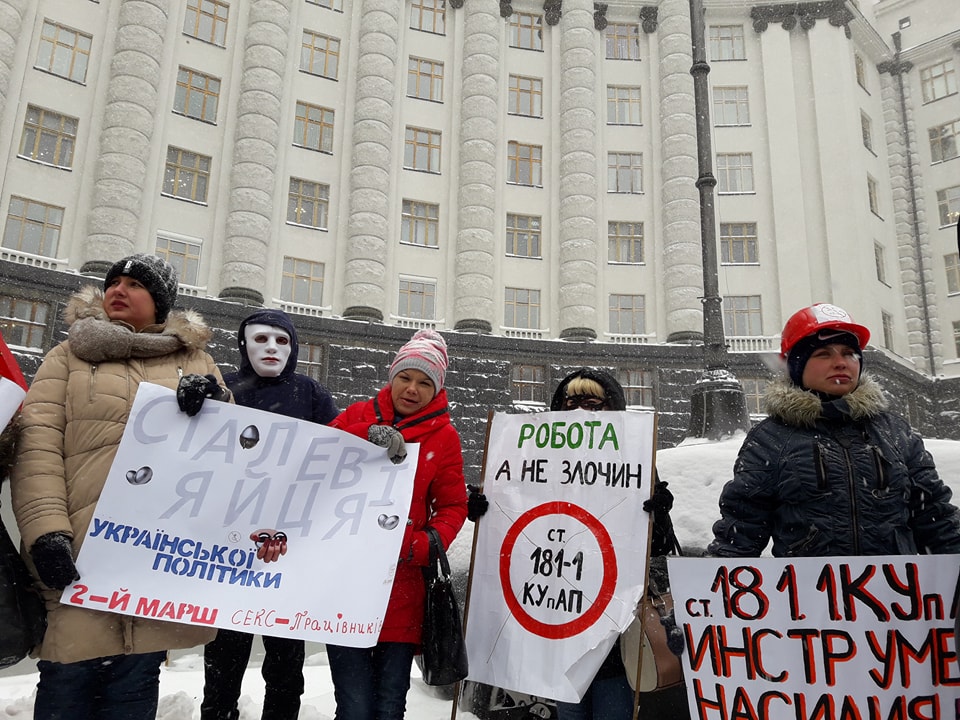
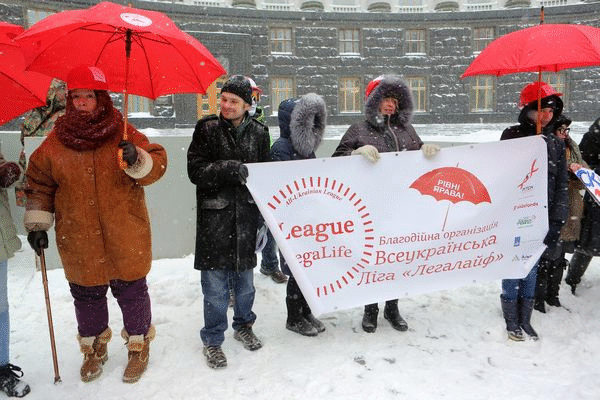

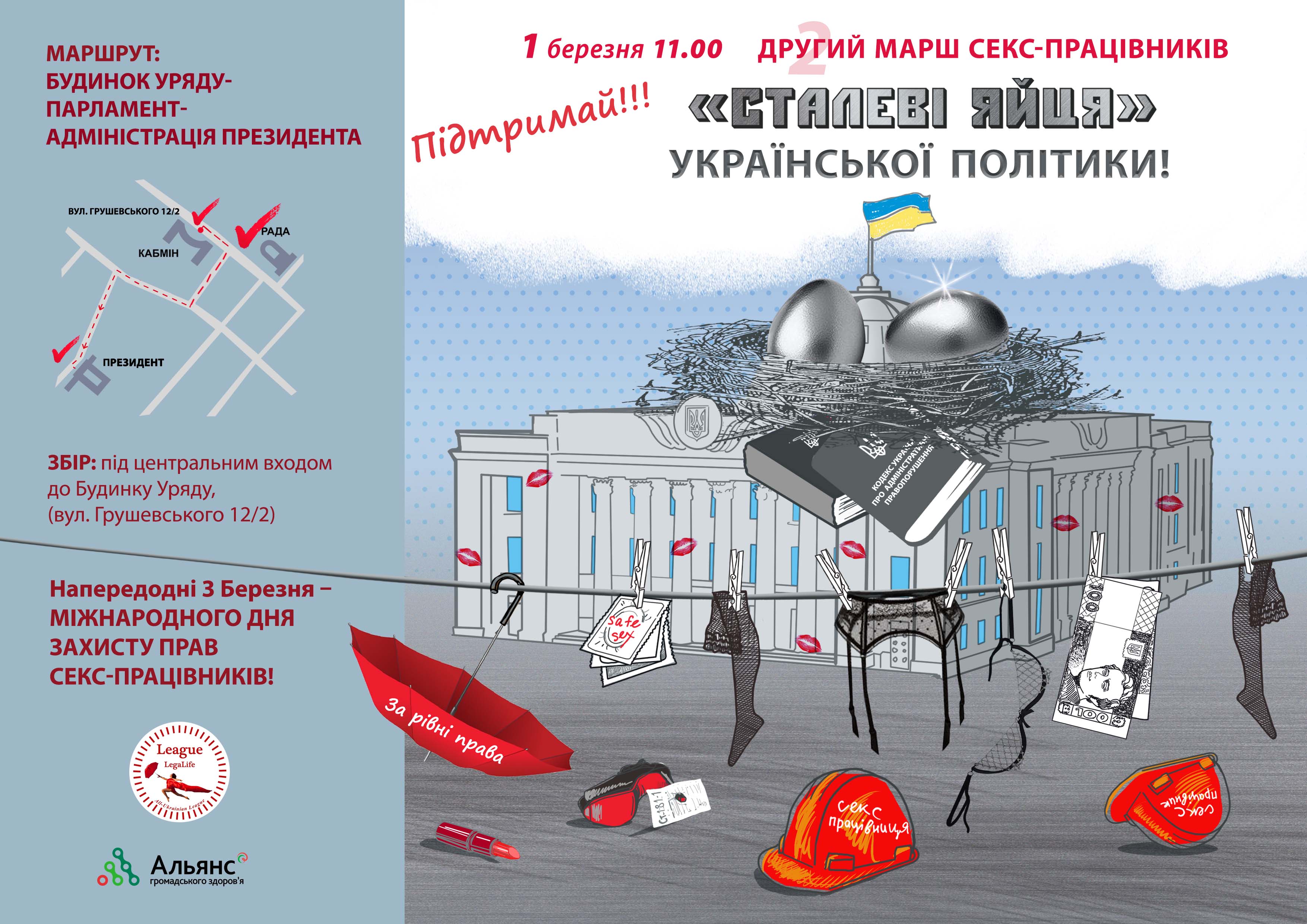

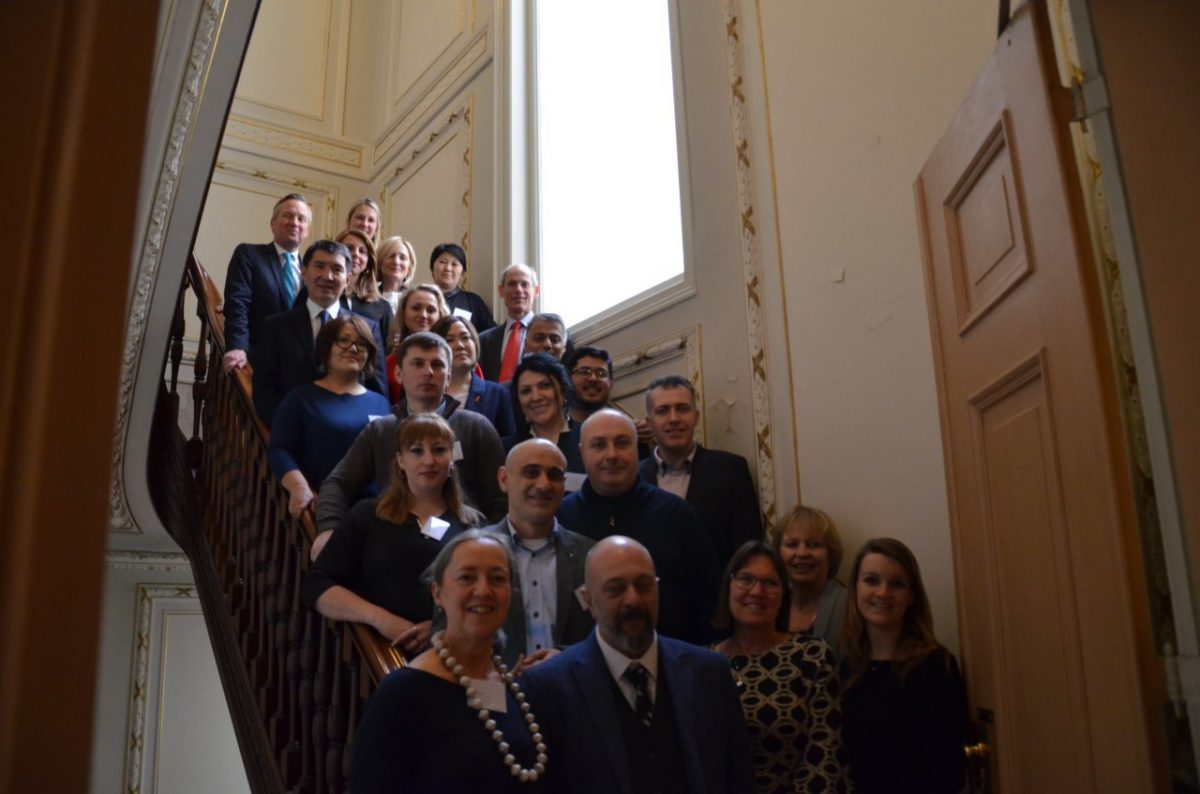
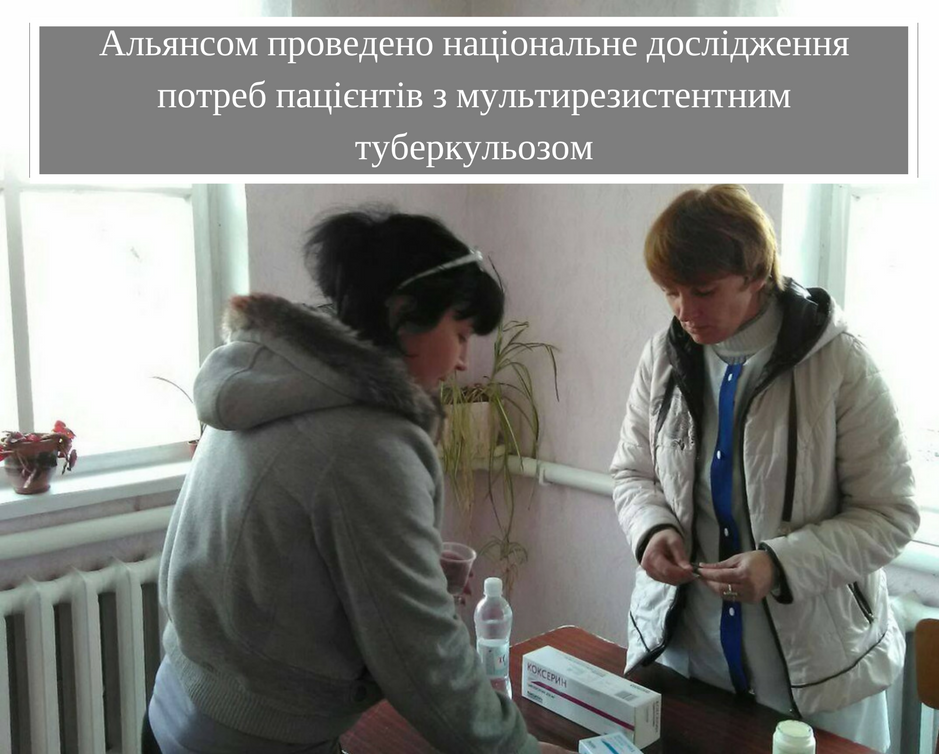
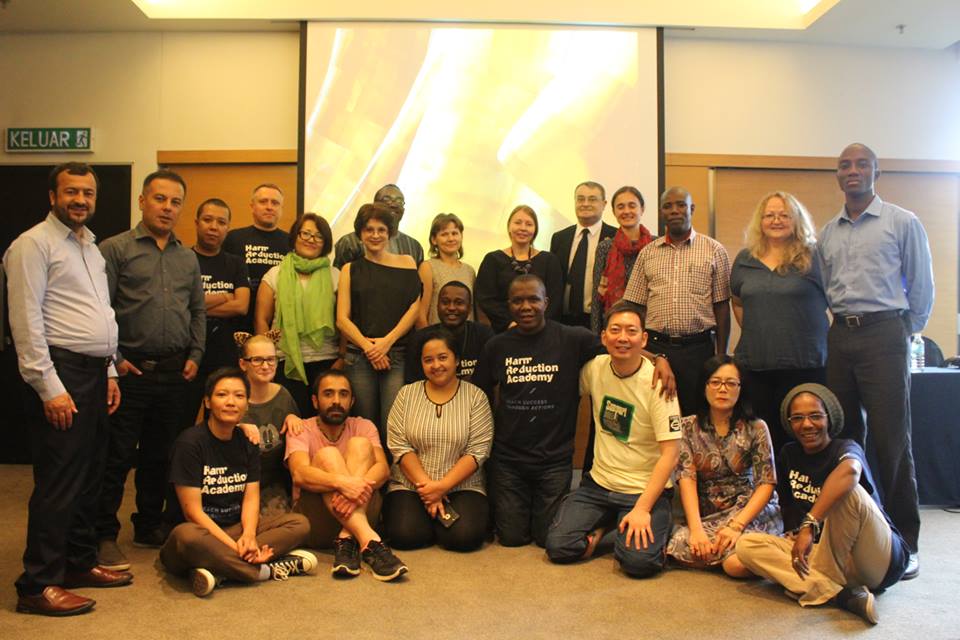
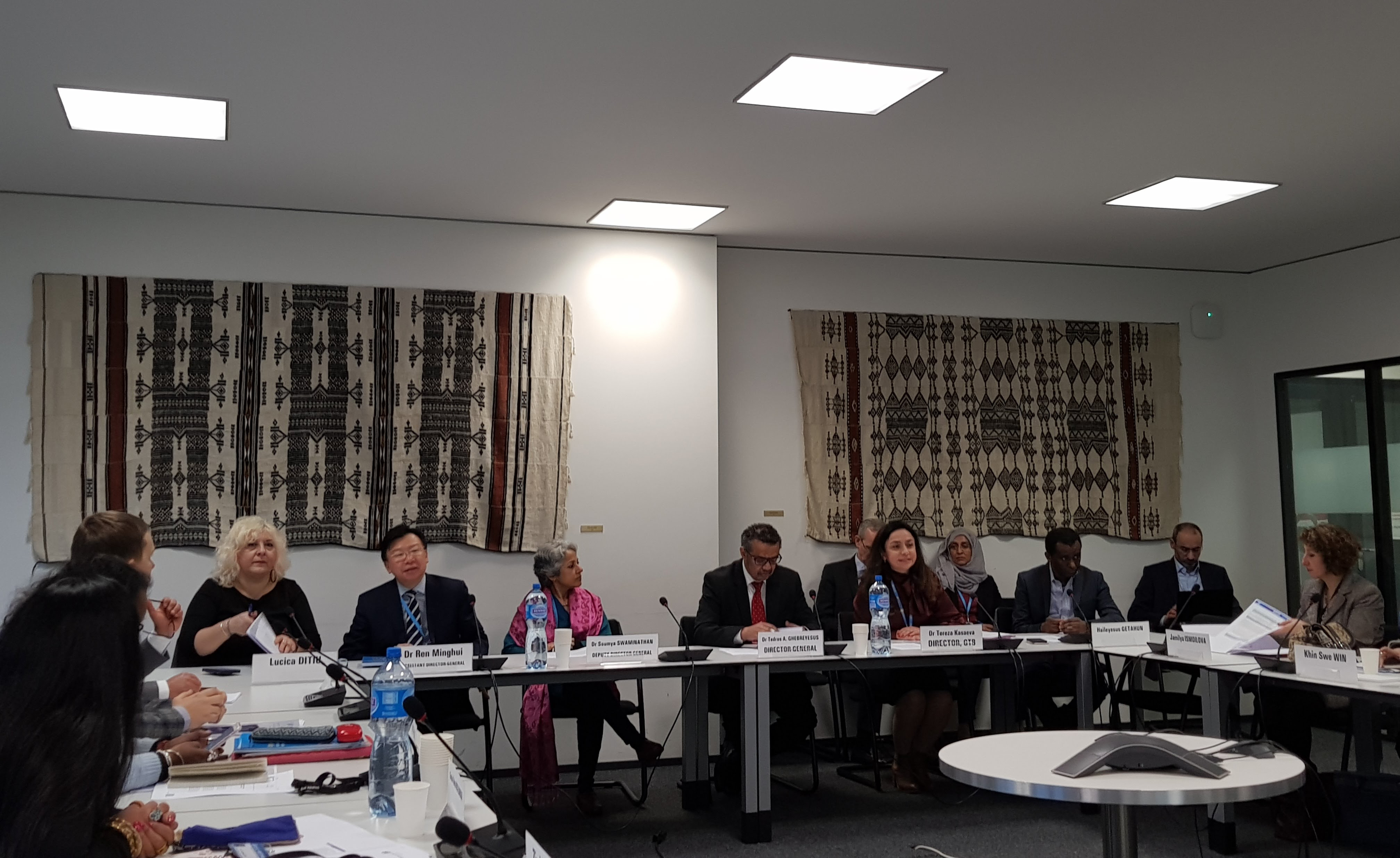






 “The Government understands its responsibility before patients and assumed the responsibility to purchase medications for opioid substitution therapy in order to ensure its sustainability and further development”, – said Iryna Chybisova chief specialist of the State Institution “Ukrainian Center for Social Disease Control of the Ministry of Healthcare of Ukraine during the briefing.
“The Government understands its responsibility before patients and assumed the responsibility to purchase medications for opioid substitution therapy in order to ensure its sustainability and further development”, – said Iryna Chybisova chief specialist of the State Institution “Ukrainian Center for Social Disease Control of the Ministry of Healthcare of Ukraine during the briefing.

